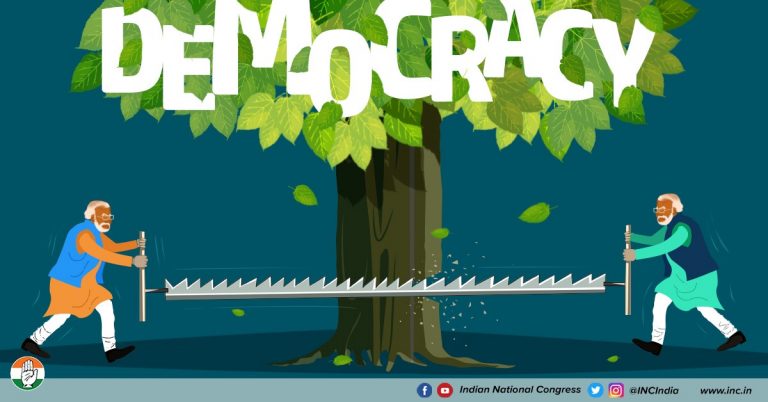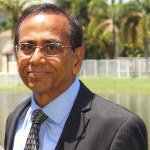

As long as Modi’s opponents live in denial about their own shortcomings and Modi’s immense strengths, his political supremacy will go unchallenged—and questions about Indian democracy will continue to mount.
By Nazarul Islam
India’s drop in the democracy league tables has less to do with the nature of its elections—which are largely free and fair—than with the shrinking democratic space between them. These grim assessments point to several troubling political developments in the country: the consolidation of a Hindu-majoritarian brand of politics, the excessive concentration of power in the hands of the executive, and the clampdown on political dissent and on the media.
Much of that change is bound up in the figure of the prime minister, whose electoral appeal rests on his stated ambition to break with politics as usual. But despite numerous controversies, Prime Minister Narendra Modi remains immensely popular. His hold over the public imagination has not waned—and for Indian democracy, the implications are momentous.
Many other postcolonial states that won their independence in the twentieth century lapsed into dictatorship or military rule, but India has long trumpeted the abiding virtues of its model of pluralist liberal democracy. That model, which seeks to find unity by embracing India’s unprecedented religious, linguistic, and ethnic diversity, is now under pressure on several fronts.
Emboldened by a second consecutive parliamentary majority in 2019, Modi and his Hindu nationalist Bharatiya Janata Party (BJP) have moved in an avowedly majoritarian direction. In the summer of 2019, the government unilaterally nullified the constitutional semi-autonomy of the Muslim-majority state of Jammu and Kashmir (a move that involved cutting off the Internet and detaining leaders of the political opposition in Kashmir).
It passed a law that offers an expedited pathway to citizenship for migrants from neighboring countries provided they don’t practice Islam, suggesting that citizenship and belonging in supposedly secular India can turn on religious identity. And in countless instances, Muslims have been victimized in communal riots or mob lynching.
The steady drumbeat of anti-minority rhetoric from the ruling party and its allies—and the absence of unequivocal condemnation from the authorities—has fueled the belief that such extralegal violence is implicitly
Alongside its predilection for majoritarian politics, the government has also centralized power to an extent not seen in India since Prime Minister Indira Gandhi’s tenure, more than three decades earlier. This centralization has multiple dimensions. Within the central government, power is increasingly concentrated in the prime minister’s office at the expense of cabinet ministries.
The executive has also come to dominate Parliament, while the judiciary has carefully skirted politically inconvenient cases. Outside of New Delhi, the central government has involved itself with greater alacrity in domains constitutionally under the jurisdiction of India’s states. Institutions meant to guarantee accountability have not lived up to their responsibility to check the government.
The BJP swept to power in 2014 on the back of widespread anticorruption protests across India in 2012 and 2013. Yet, in office, the BJP has worked to marginalize a new corruption ombudsman and defang an information commission overseeing India’s sweeping right to information law. The country’s top auditor issues fewer reports scrutinizing the central government’s activities.
Even the hallowed Election Commission of India—one of the world’s most widely respected electoral agencies—has faced credible accusations of deferring to the government’s whims.
In the national theater of politics, the opposition has failed to understand why Modi continues to prevail. He is a grassroots leader who has climbed his way to the country’s top job on his own merit—without the aid of a politically connected family. He has tapped into the aspirations of a restless country impatient for change and frustrated with political convention. And he has infused political discourse with a fierce nationalism that conveys a newfound assuredness.
As long as Modi’s opponents live in denial about their own shortcomings and Modi’s immense strengths, his political supremacy will go unchallenged—and questions about Indian democracy will continue to mount.
_____________________
About the Author
 The Bengal-born writer is a senior educationist based in USA. He writes for Sindh Courier and the newspapers of Bangladesh, India and America.
The Bengal-born writer is a senior educationist based in USA. He writes for Sindh Courier and the newspapers of Bangladesh, India and America.